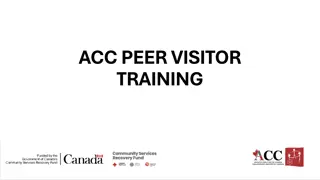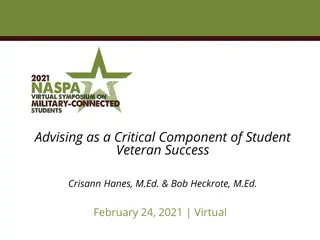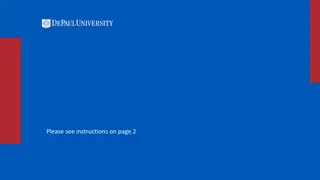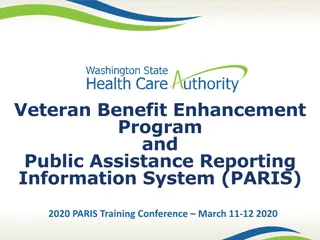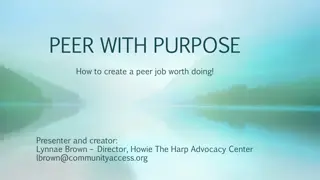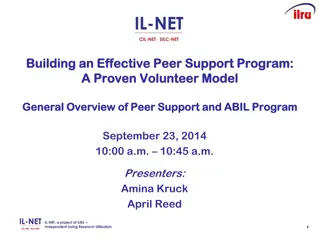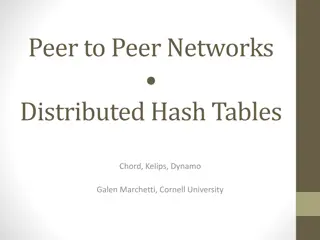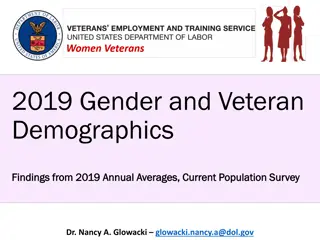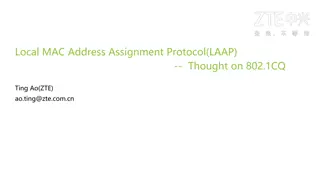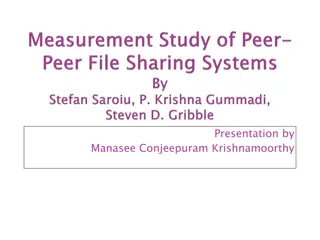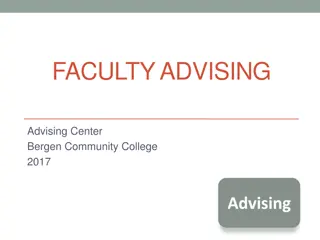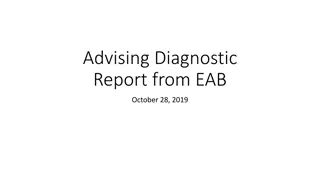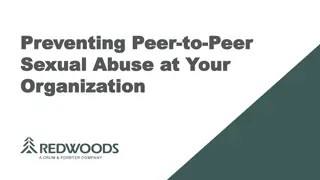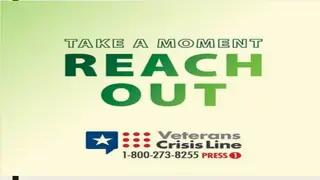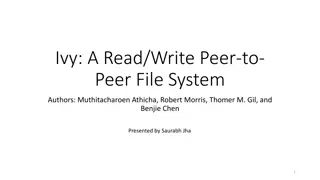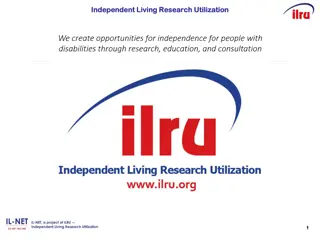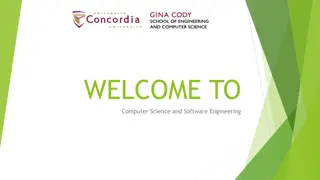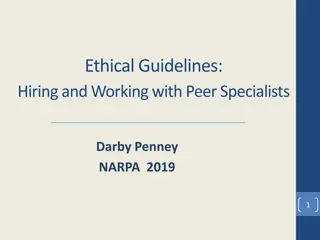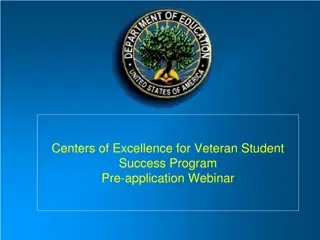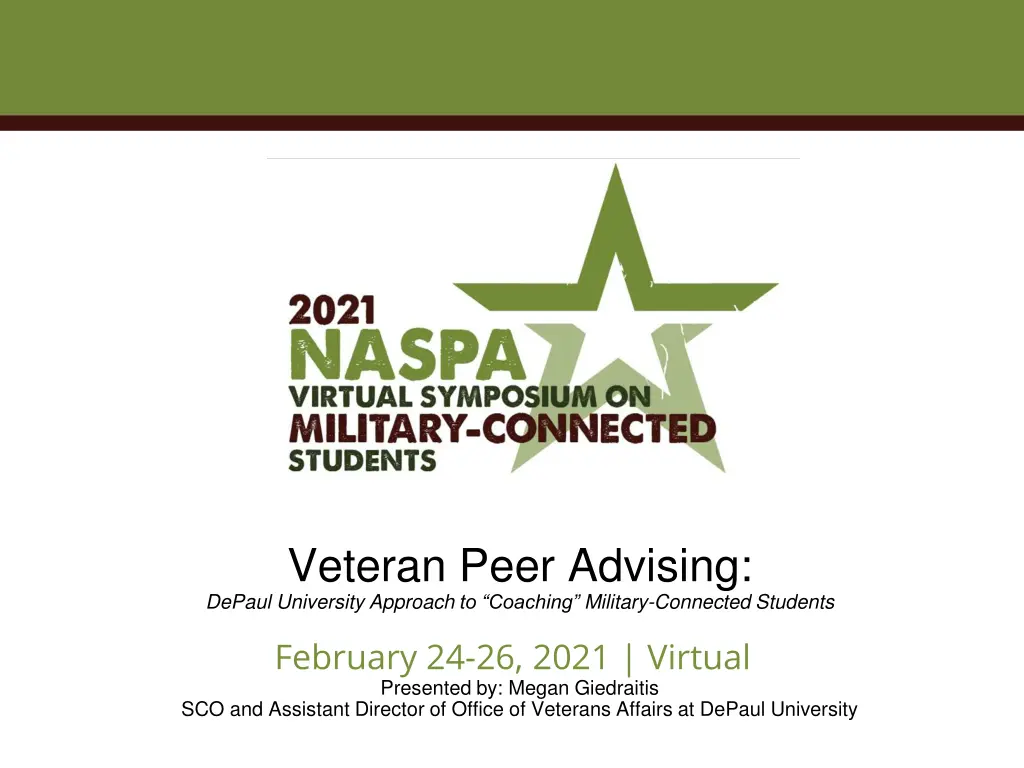
DePaul University Coaching Program Insights
Gain insights into DePaul University's innovative coaching approach for military-connected students, including data collection, lessons learned, collaboration with other institutions, and program success factors. Discover how coaching programs vary across institutions, offering flexibility in program design and direction. Presented by Megan Giedraitis at the #SMCS21 event.
Download Presentation

Please find below an Image/Link to download the presentation.
The content on the website is provided AS IS for your information and personal use only. It may not be sold, licensed, or shared on other websites without obtaining consent from the author. If you encounter any issues during the download, it is possible that the publisher has removed the file from their server.
You are allowed to download the files provided on this website for personal or commercial use, subject to the condition that they are used lawfully. All files are the property of their respective owners.
The content on the website is provided AS IS for your information and personal use only. It may not be sold, licensed, or shared on other websites without obtaining consent from the author.
E N D
Presentation Transcript
Veteran Peer Advising: DePaul University Approach to Coaching Military-Connected Students February 24-26, 2021 | Virtual Presented by: Megan Giedraitis SCO and Assistant Director of Office of Veterans Affairs at DePaul University #SMCS21 @NASPAtweets
Agenda Introduction How it started Data collection and lessons learned How it is going Collaboration with other universities #SMCS21 @NASPAtweets
How it started DePaul was offered a donation in 2018 that was aimed at starting a coaching program/programs for our student populations Office of Veterans Affairs piloted this at that time Goal of coaching was to help enhance the students experience by providing them a peer coach that would help assist with goal setting, resources, etc. Needed to collect data from other institutions that did coaching programs to learn more best practices and help our program take off #SMCS21 @NASPAtweets
Data collection on coaching programs at other institutions The list below describes the institutions that participated. It includes pseudonym names, institution type (Public/Private), approximate student body size, coaching program population, and size of that audience. University of Silicon Valley Private 10,700 students (6,000 undergrad) Two coaching programs: first to 1,500 first-year students and second coaching program to 1stgeneration audience of 55 to 65 students annually West Coast Ocean University Private 10,000 students (5,500 undergrad) Coaching program open to entire undergrad Addison University Private 8,200 students (6,700 undergrad) coaching program open to all undergraduates Southern College Private 8,100 students (6,000 undergrad) veteran coaching program with about 200 students audience Big State University Public 38,000 students (34,000 undergrad) Open to all students but target minority and low academic performing (about 12,000) University of the Sea Private 5,700 students coaching program for those on probation approximately 90- 150 per term DePaul University Private -22,000 students coaching program being measured here is for veteran students, approximately 600 students. #SMCS21 @NASPAtweets
Interpretation and findings Great variety in coaching programs across the institutions Defining coaching varied Different than mentoring Assumes coaches are experts if considered a mentor and most coaches were students themselves Some institutions were strengths based Some were retention and persistence oriented Gave us flexibility in which direction we wanted to take our program given other institutions data and program success #SMCS21 @NASPAtweets
DePauls coaching program goals Train our 6 current veteran liaisons in our office to be coaches for our military connected students Decided to focus on goal setting when initiating a coaching session Wanted to distinguish between regular Office of Veterans Affairs inquiries (ie. VA Educational Benefit questions) and the use of the coaches #SMCS21 @NASPAtweets
Struggles out of the gate Getting our coaches to initiate coaching sessions Getting students to do a coaching session Started incentivizing the sessions for the coaches AND the students offering Amazon gift cards for participation #SMCS21 @NASPAtweets
Results after that pilot year Throughout the year we were only able to get roughly 3-5 coaching sessions scheduled each quarter 22 total sessions for the whole year In terms of success = not great #SMCS21 @NASPAtweets
What we learned Focus groups and surveys went to students to learn what they liked or didn t like about the program #1 Issue calling it coaching! Felt like at this stage in their lives and with the life experience they have, they don t need a coach #SMCS21 @NASPAtweets
Year Two Changes Veteran Coaches became Veteran Peer Advisors Focus was on goal setting, but overall reducing barriers Understanding VA Education Benefits How to set up an appointment with their academic advisor How to set up an appointment with the writing center #SMCS21 @NASPAtweets
What we saw Students were much more interested in setting session with their peer advisor Students were leaving these sessions with a better understanding of what they had to do next Started to see these students that were participating in our peer advising sessions became reoccurring customers in the Office of Veterans Affairs #SMCS21 @NASPAtweets
Year two data 56 total peer advising sessions with military connected students More than double last years numbers Success! #SMCS21 @NASPAtweets
What we learned Reducing barriers and not limiting these sessions to goal setting created a lot more success in the program Barriers are defined differently for each student and their unique situation Go into the next academic year assessing each touch point with our students and our veteran peer advisors to see if they eliminated a barrier for the student #SMCS21 @NASPAtweets
How its going 2020/2021 academic year is our 3rdyear doing this Fall 2020 quarter has concluded and we saw 122 appointments 90 unique students Huge improvements! #SMCS21 @NASPAtweets
Recap of what we changed Peer advisor sessions are not defined by just goal setting Can be any interaction with a military connected student that resulted in a barrier being handled/a plan being put in place to assist Utilizing all of our outlets which include: Email Live chat Phone call Zoom room conversation #SMCS21 @NASPAtweets
Covid-19 and Peer Advising Learned that zoom and virtual appointments have actually proven to be less of a barrier than showing up to a physical in-person appointment Intend to take this into consideration when we get back to campus and allow meetings to be held virtually still #SMCS21 @NASPAtweets
Breakout rooms Meet with other institutions and discuss: Are you doing a program like this at your institution? If yes, how is it going? If no, what are some barriers you face getting a program like this up and running? Questions you need answered to move forward with this type of program? #SMCS21 @NASPAtweets
Questions? Megan Giedraitis, M.S. (she/her/hers) Assistant Director of Adult, Veteran and Commuter Student Affairs Student Affairs | DePaul University 1 E. Jackson Blvd. | Suite 11012 | Chicago, IL 60604 (312) 362-8092 | mburda1@depaul.edu #SMCS21 @NASPAtweets

